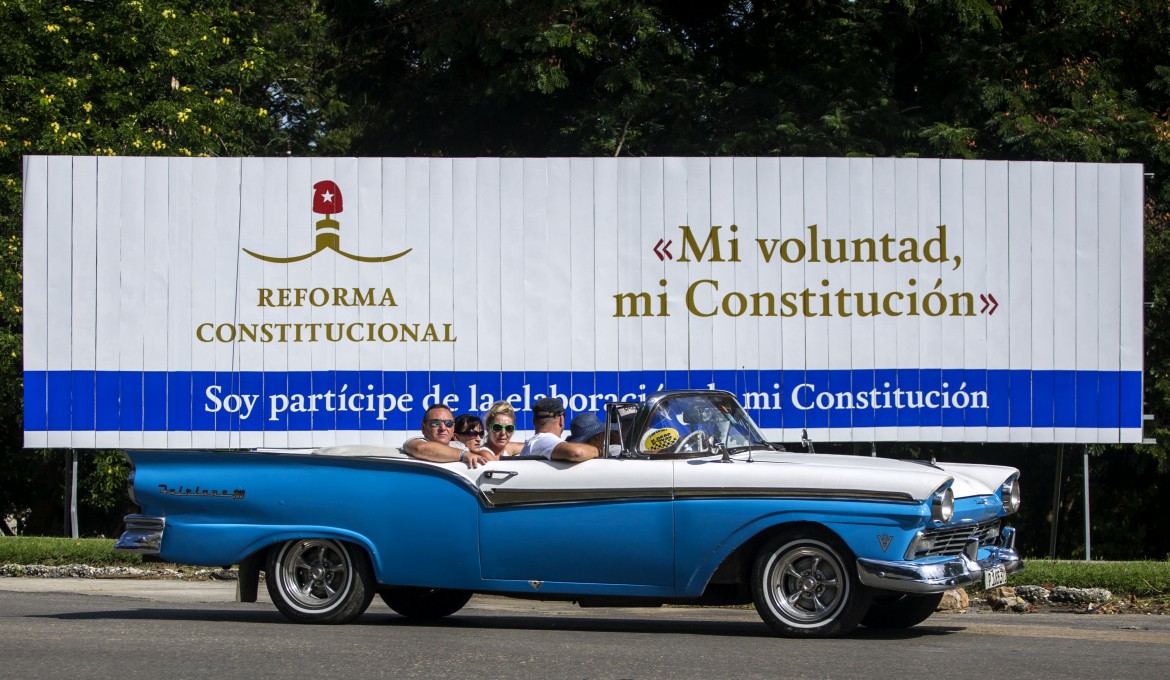Reportage
Cuban constitution hints at new rights while preserving single-party rule
Some say the controversy over gay marriage in the constitution was a deliberate smokescreen to divert attention from other political issues, such as the Communist Party being the only party.

The tens of thousands of assemblies and meetings, attended—according to official figures—by a total of eight million Cubans (out of a population of just over 11 million), have produced an avalanche of proposals for amendments to the text of the new Constitution, which was prepared in July by a special commission headed by former President Raúl Castro. Last week, after the examination of these amendments, the final draft of the new fundamental law was approved by the National Assembly, the single-chamber Cuban Parliament. The new Constitution will be subjected to approval by a popular referendum at the end of February.
The text approved by the Parliament has 229 articles, four more than the original draft, from which three articles have been eliminated and 34 modified. One notable absence is the proposed Article 68, which explicitly set out the notion of “egalitarian marriage” to include that between persons of the same gender, not just “between a man and a woman,” the provision found in the 1976 Constitution. The new proposed text had triggered protests, some involving public demonstrations, particularly on the part of the Evangelical churches on the island, but also had solid support from various sectors of the population. The article had been proposed by Mariela Castro, Raúl’s younger daughter, who heads Cenesex, an institution that has been very active in promoting LGBTI rights in Cuba.
The proposal for enshrining the right to gay marriage had garnered great international attention, and was to be the flagship of the social reforms that would have shown that real changes have taken place in the island, although the traditional culture of machismo still exists, especially in the provinces. Instead, the final form of the article ended up ambiguous, mentioning free marriage between spouses.
According to Mariela Castro, this is “not a step back,” because the text “leaves open the possibility that all people will be able to have access to the institution of marriage.” In addition, she pointed to the common-law civil unions as a novel development, which “are already occurring regardless of the gender difference, and which, according to statistics, are the most widely practiced in our society.” Even the Communist gay blogger Francisco Rodriguer, known as Paquito de Cuba, wrote that the final form adopted was a “reasonable compromise.”
What will be decisive on the matter of allowing gay marriage will be the new Family Code, which has been under discussion for more than 10 years. However, it is clear that part of the Cuban LGBTI movement has been left sorely disappointed. Despite the defense put forward by Raúl’s daughter, the most prominent defenders of the notion of egalitarian marriage are now small opposition groups.
There are some who claim the whole controversy was a deliberate “smokescreen,” a proposal that was meant to stir controversy in order to divert attention from other political issues: for instance, that of the Communist Party being the only party, which, according to Article 5—confirmed despite proposals for amendment—is the dominant force in the country and the foundation of “Socialist rule of law,” as well as of state control over all media.
Another rejected amendment was the popular election of the president—who, just as before, will be elected by the National Assembly from among its members—as well as popular elections for other regional and provincial bodies. Furthermore, another proposal thrown out was the request to modify the new law for investments—which expands the openings and guarantees offered for foreign capital—to give small and medium Cuban entrepreneurs the possibility to invest in state projects.
On the other hand, an explicit reference to Communism has been added—not present in the initial text: “The human being reaches their full dignity only in Socialism and Communism,“ says the added sentence in the Preamble. There is also clear language setting out that the Socialist state, under the principle of the rule of law, is the ultimate regulator of the market and of the planned economy—which, however, will coexist with the notion of private property.
According to the sociologist Aurelio Alonso, this constitutional reform strengthens a number of safeguards in Cuban society concerning human rights, although there are still gray areas, such as Article 95, which protects works of art only when they conform to “Socialist values,” raising fears of a possible return of the dreaded “Socialist realism.” In addition, the reaffirmation of the single party, without any concrete guarantees of popular control and without a clear distinction between party and state, fails to address the problem of a parasitic bureaucracy.
Originally published at https://ilmanifesto.it/cuba-si-gioca-la-sua-carta-fondamentale/ on 2018-12-28
